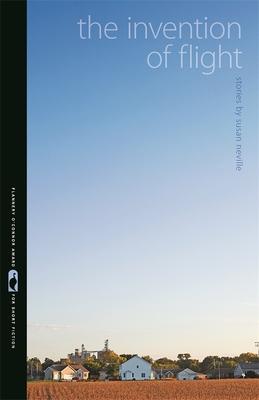Susan Neville combines a gift for language with a subtle eye and a fine instinct for character. Her characters--and her settings--are, most of them, midwestern. There is the staunchly midwestern wife in the story "Kentucky People," for instance. She was born in this house in this Indiana town, a world far removed from people like Mrs. Lovelace, next door, transient people "who have followed the industrial revolution from Kentucky to Indiana and most of whom are now in Texas." Nothing really out of the way has ever happened to her. Now she "shivers with excitement" when she is called upon to help Mrs. Lovelace throw her husband out--helps her haul all of his belongings out onto the porch: underwear, shoes, whiskey bottles, rolltop desk, even "wedding presents from his side of the family."
The collection moves from the playful tone of "Johnny Appleseed," in which the author takes an old fecundity myth and does something different with it, to the wise and poignant story of an elderly woman attending a family gathering at which she recognizes the separateness from her children and grandchildren that the cancer within her has given her. It has been months since any one of them has kissed her on the mouth. There are so many things that she would like to tell them, "but they don't want to talk about it, each one of them positive that he is the one human being in the history of the earth who will never ever die." All of the stories in this unusual first collection stick in the reader's mind long after he has read them.
Susan Neville combines a gift for language with a subtle eye and a fine instinct for character. Her characters--and her settings--are, most of them, midwestern. There is the staunchly midwestern wife in the story "Kentucky People," for instance. She was born in this house in this Indiana town, a world far removed from people like Mrs. Lovelace, next door, transient people "who have followed the industrial revolution from Kentucky to Indiana and most of whom are now in Texas." Nothing really out of the way has ever happened to her. Now she "shivers with excitement" when she is called upon to help Mrs. Lovelace throw her husband out--helps her haul all of his belongings out onto the porch: underwear, shoes, whiskey bottles, rolltop desk, even "wedding presents from his side of the family."
The collection moves from the playful tone of "Johnny Appleseed," in which the author takes an old fecundity myth and does something different with it, to the wise and poignant story of an elderly woman attending a family gathering at which she recognizes the separateness from her children and grandchildren that the cancer within her has given her. It has been months since any one of them has kissed her on the mouth. There are so many things that she would like to tell them, "but they don't want to talk about it, each one of them positive that he is the one human being in the history of the earth who will never ever die." All of the stories in this unusual first collection stick in the reader's mind long after he has read them.